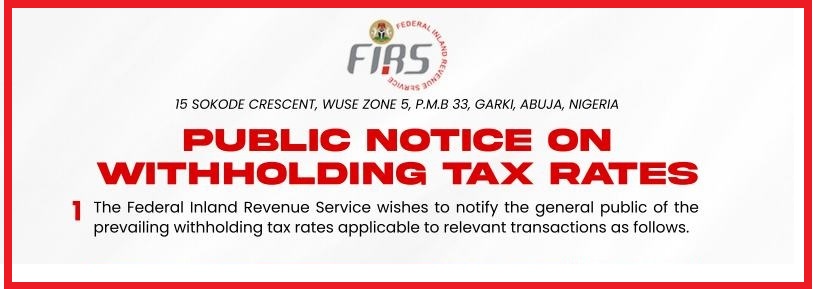By Kazeem Akintunde
The Central Bank of Nigeria, CBN, last week came out with another bold move in its bid to rescue the economy from hyperinflation that is threatening to squeeze life out of many Nigerians by further strengthening its cashless policy introduced 10 years ago. In the new policy, the CBN mandated deposit money Banks and other financial institutions to ensure that over-the-counter cash withdrawals by individuals and corporate entities do not exceed N100, 000 and N500, 000 per week respectively. If you wish to withdraw above the fixed limit, it will attract a processing fee of 5 per cent and 10 per cent respectively.
Banks were also directed to load only N200 and lower denominations into their ATM. Individuals, also, cannot withdraw more than N20, 000 per day with their ATM Cards. Again, third-party cheques above N50, 000 shall not be eligible for payment over the counter, while extant limits of N10, 000,000 on clearing cheque shall subsist.
In compelling circumstances, not exceeding once a month, where cash withdrawals above the prescribed limits are required for legitimate purposes, such cash withdrawals shall not exceed N5,000,000.00 and N10,000,000.00 for individuals and corporate organisations, respectively, and shall be subject to the referenced processing fees. However, such individual or corporate organisations is expected to provide more information to the Bank on the nature of such transactions.
Such information shall include a valid means of identification of the payee (National Identity Card, International Passport, Driver’s License.), Bank Verification Number of the payee, Notarised customer declaration of the purpose of the cash withdrawal, Senior management approval for the withdrawal by the Managing Director of the drawee, in case of a corporate organization as well as approval in writing by the MD/CEO of the bank authorising the withdrawal.
Banks are also directed to provide more information to the apex Bank on a regular basis such as monthly returns on cash withdrawal transactions above the specified limits which should be rendered to the Banking Supervision Department, compliance with extant AMUCFT regulations relating to the KYC, ongoing customer due diligence and suspicious transaction reporting etc., is required in all circumstances. Banks customers, the CBN stated, should be encouraged to use alternative channels (internet banking, mobile banking apps, USSD, cards/POS. eNaira, etc.) to conduct their banking transactions.”
On paper, these are good and bold moves to improve the cashless policy and curb the activities and bandits and kidnappers who abduct people for ransom payments. Alongside its policy on the redesign of higher naira denominations of N200, N500, and N1, 000 notes, the CBN has shown that it has thinkers within its ranks and are working towards improving the economy as well as curbing the shenanigans of criminal elements in the country.
However, the timing of the new policy has been of major concern to many Nigerians, and have come out to say that it may not yield the desired result as it has the potential of further driving many Nigerians away from the Banking system. Again, infrastructural challenges such as bad networks, poor power supply, and shortage of ICT personnel in most Banks may pose a major challenge for the policy. The daily withdrawal limit of N20, 000 through ATM has also come under flakes from many Nigerians.
When the CBN announced its policy to redesign the higher naira denominations, several billions of naira stockpiled at home, some buried underground, some stored in G-P tanks, and some in specially constructed bunkers were brought out all in various stages of decomposition. And has envisaged, the activities of kidnappers reduced for a while as many of the criminals knew that even if they demanded millions of naira, they may not be in a position to spend such huge amount of money before the CBN’s policy kicked in. Some of the criminals started requesting for ransom payments in foreign currencies and making demands for foodstuffs and other commodities.
As it is our practice in Nigeria, many of the bandits and terrorists are eagerly waiting for the newly redesigned naira notes to come into circulation before looking for a loophole to beat the system. The same thing is likely to be the case with the new cash withdrawal limits. While I am in full support of a cashless society, the right conditions must, however, be put in place first. For now, Nigeria is not ripe for full cashless society as the right conditions that would make the process seamless are still not on ground.
Though CBN Governor, Godwin Emefiele said that the cashless policy was introduced in 2012 and that it is now time to go the whole hog, I am not fully convinced that we are ripe for a completely cashless society. In the United States of America, with all its high-end technology and 24-hour stable power supply, you can withdraw up to 300 and 1,000 dollars depending on your bank and your personal data. In the United Kingdom, you can also withdraw between 300 and 1,000 pounds. So in reality, no society is 100 percent cashless.
What is the value of N20, 000 in today’s Nigeria, and what are those things you can purchase with it in the market? Again, the CBN wants every Nigerian to be internet compliant. Yet, less than 50 per cent of Nigerians have access to the internet while less than 30 per cent of Nigerians have Bank accounts in the first place. Aside that, there are no incentives for Nigerians to keep their funds with Banks in the country. Banks can keep our money, trade with it, and make profits but you are telling Nigerians that they cannot make use of their own money in case there is an emergency. How many traders and market women have point-of-sale machines? Has the CBN considered network failure and incomplete transactions that are usually the order of the day even in big establishments? Imagine you are asked to make a deposit of N100, 000 for an emergency operation in a hospital, and their POS is not working. You may need to purchase drugs and the pharmacy is insisting on cash payment because of several failed bank transactions in the past. What if you intend to buy a cow from a Fulani man in the Bush? Is the CBN expecting the man to have a POS machine with him there?
Agreed that there are several benefits to a cashless society, but the way the CBN is going about it may drive many Nigerians away from the banking system. People will resort to keeping cash at home for emergency purposes. Many traders will also resort to the old style of keeping their money under their pillows as most Nigerians detest Banks that offer no benefits or incentives to them. Banks in Nigeria only keeps your money to take their COT.
Again, due to poor pay within the banking system now, many of the Banks are infested with crooks and rogues who have partners outside the Bank. They compromise on rich people account holders by providing information and their banking details to their criminal colleagues outside. Through online transactions, many Nigerians have lost several billions of naira to criminals within the Banks and only a fractions of such cases are reported to the CBN for investigation and sanctions.
What are the incentives for keeping money in a Banks in Nigeria? Absolutely none. Interest on savings is nothing to write home about. At 1.5 per cent, it does not even make any sense to save money in Nigerian Banks. Dividends on Treasury bills have collapsed from 20 per cent 10 years ago to less than 2 per cent now. It means in one year, you can only make 2 per cent on investment but the COT deducted from your banks will almost wipe away the 2 per cent gain. But get into trouble and request for a loan, you may be asked to provide the birth certificate of your great-grandfather at over 18 per cent interest with several hiding charges.
As expected, lawmakers in both the senate and the House of Representatives are up in arms against the new policy with the lower chamber already calling for the suspension of the policy while also ordering Emefiele to appear before the House on Thursday.
In the motion moved by Aliyu Magaji (APC Jigawa), he said small businesses, which are the major drivers of the economy, depend on cash for transactions and that owners of such businesses are going to be negatively impacted by the policy. While acknowledging the fact that the CBN has the statutory power to implement monetary policy, he, however, stated that the new policy will have a negative impact on the economy at large. “Although the Central Bank of Nigeria has the right to issue monetary policies on the Nigerian economy to be able to guide and direct the economy to the right part of recovery and growth, however, the new policy rolled out by the Central Bank of Nigeria (CBN) will definitely have a negative impact on the already dwindling economy, and further weakens the value of the Naira as Nigerians may resolve to use dollars and other currencies as a means of trading and thus further devalue Naira and weakens the economy,” he stated.
Even before his summoned date, Emefiele has said that the withdrawal limits is still subject to review but he was emphatic that the policy has come to stay. Emefiele at the end of a meeting with President Muhammadu Buhari in Daura, Katsina State told reporters that the policy was not politically motivated and that it was in the interest of the economy. Adamawa State Governor, Ahmadu Fintiri, however, dismissed the submission made by Emefiele, insisting that the policy was targeted at the political class.
Another class of people vehemently against the policy are the Point-of-Sale operators who have vowed to resist the policy as it would wipe them out of business. The Director of Corporate Communications of the Central Bank, Mr Osita Nwanisobi, has, however, urged them to take advantage of the exemption in the policy to request more cash beyond the new limit. He said, “The circular is very clear. If you are doing PoS, it is online and mobile transaction. Whenever cash is involved, then there is a limit. However, there is an exemption in the circular, which PoS operators can apply for based on the volume of their transactions.”
In the coming weeks, how the CBN will force the new cure all pill down the throats of Nigerians is yet to be seen. One thing is however, clear, those in the business of kidnapping for ransom are in for a tough time next year as the reforms in the banking system take shape. With improved technology, a review that could allowed Nigerians withdraw up to N50,000 daily and a sincere and honest Bank staff, we may eventually get it right sooner than later.
See you next week.







